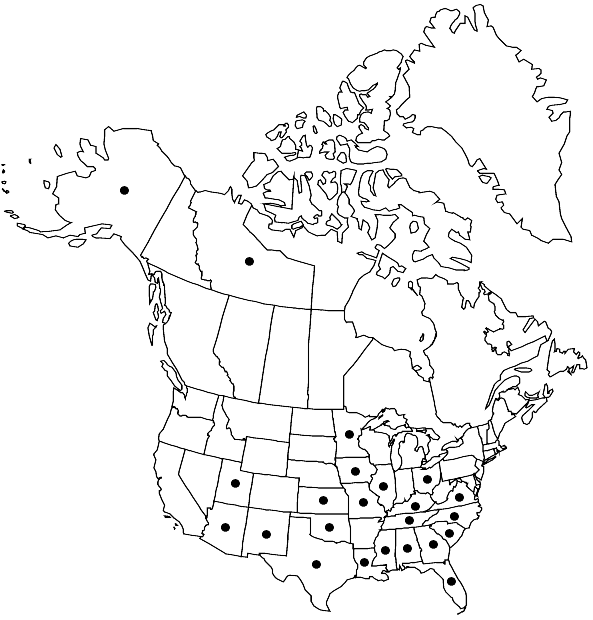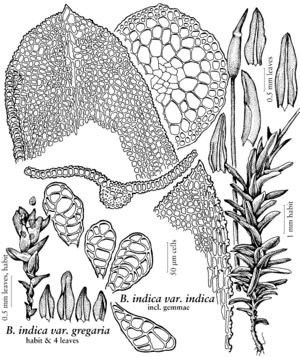Barbula indica var. indica
Leaves narrowly oval to elliptic, margins plane or weakly recurved at mid leaf. Specialized asexual reproduction by small, green, obovoid gemmae occurring in masses in distal leaf-axils, of several cells, 70–90 µm.
Habitat: Soil, clay, limestone, cement, walls
Elevation: low to moderate elevations (50-1000 m)
Distribution

N.W.T., Ala., Alaska, Ariz., Fla., Ga., Ill., Iowa, Kans., Ky., La., Minn., Miss., Mo., N.Mex., N.C., Ohio, Okla., S.C., Tenn., Tex., Utah, Va., Mexico, West Indies, Central America, South America, Europe (Hungary), Asia, Africa, Pacific Islands (Hawaii), Australia
Discussion
Capsules of var. indica are rare in the flora area but mature in summer in Mexico. The gemmae are usually small and obovoid, but in some specimens are somewhat enlarged and branching. The typical variety is commonly fruiting; the seta is reddish, unlike that of Barbula convoluta, which is yellow. This species is often misidentified as B. unguiculata in the southeastern states, but viewed from the side, the abaxial costal papillae form rows across the costa, lined up as they are at both ends of epidermal cells. A hygrophylic variant may be confused with B. bolleana when incrusted with lime but its leaf cells are much smaller. The Alaskan station is clearly of this variety, though the prorulae are poorly developed, being replaced with dense simple to 2-fid papillae; the Northwest Territories specimen is more clearly of the standard morphotype.
Selected References
None.
